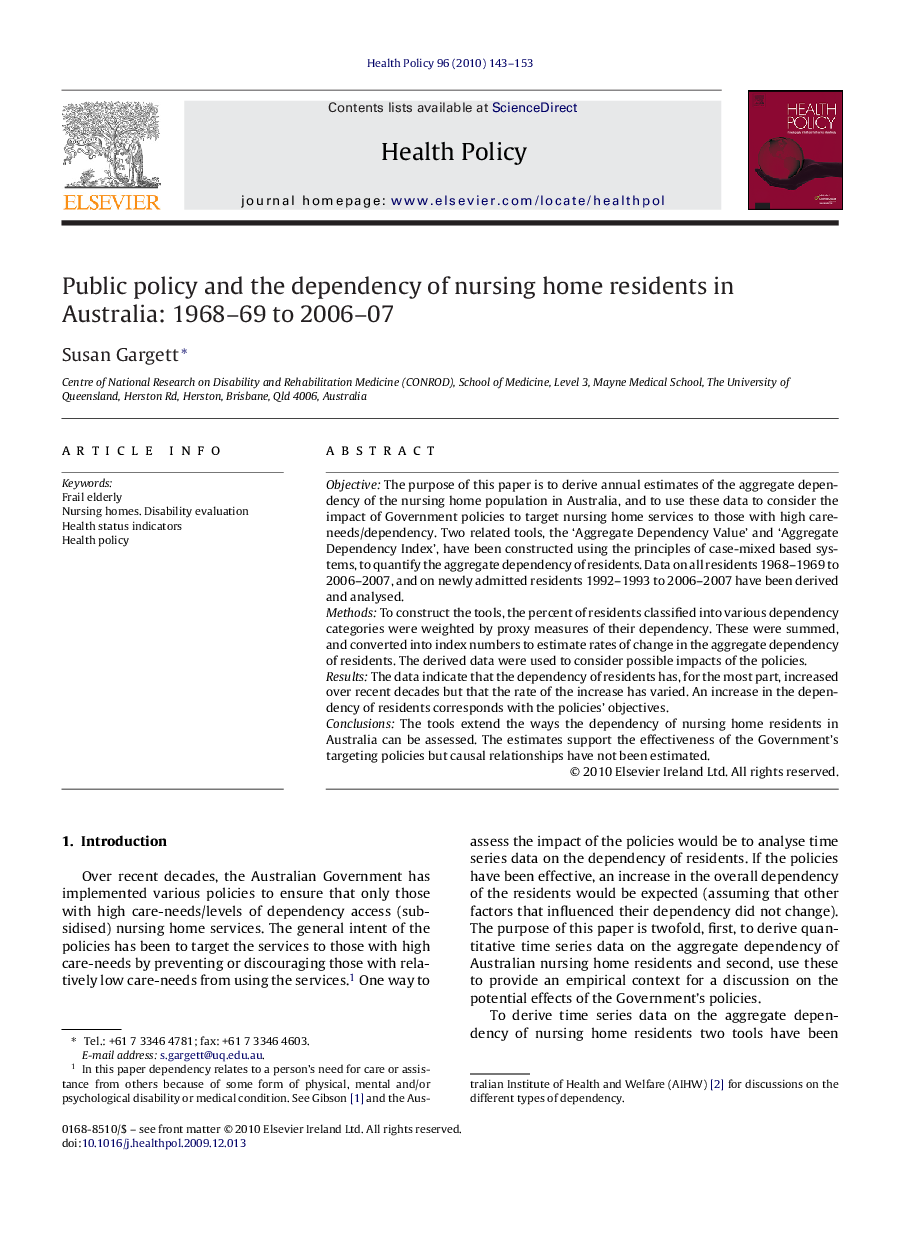| کد مقاله | کد نشریه | سال انتشار | مقاله انگلیسی | نسخه تمام متن |
|---|---|---|---|---|
| 4198278 | 1279048 | 2010 | 11 صفحه PDF | دانلود رایگان |

ObjectiveThe purpose of this paper is to derive annual estimates of the aggregate dependency of the nursing home population in Australia, and to use these data to consider the impact of Government policies to target nursing home services to those with high care-needs/dependency. Two related tools, the ‘Aggregate Dependency Value’ and ‘Aggregate Dependency Index’, have been constructed using the principles of case-mixed based systems, to quantify the aggregate dependency of residents. Data on all residents 1968–1969 to 2006–2007, and on newly admitted residents 1992–1993 to 2006–2007 have been derived and analysed.MethodsTo construct the tools, the percent of residents classified into various dependency categories were weighted by proxy measures of their dependency. These were summed, and converted into index numbers to estimate rates of change in the aggregate dependency of residents. The derived data were used to consider possible impacts of the policies.ResultsThe data indicate that the dependency of residents has, for the most part, increased over recent decades but that the rate of the increase has varied. An increase in the dependency of residents corresponds with the policies’ objectives.ConclusionsThe tools extend the ways the dependency of nursing home residents in Australia can be assessed. The estimates support the effectiveness of the Government's targeting policies but causal relationships have not been estimated.
Journal: Health Policy - Volume 96, Issue 2, July 2010, Pages 143–153